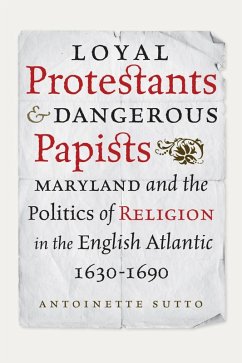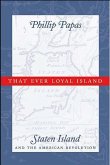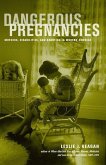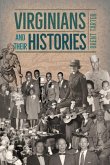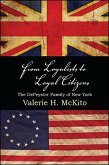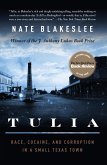Loyal Protestants and Dangerous Papists analyzes the vibrant and often violent political culture of seventeenth-century America, exploring the relationship between early American and early modern British politics through a detailed study of colonial Maryland. Seventeenth-century Maryland was repeatedly wracked by disputes over the legitimacy of the colony's Catholic proprietorship. The proprietors' strange policy of religious liberty was part of the controversy, but colonists also voiced fears of proprietary conspiracies with Native Americans and claimed the colony's ruling circle aimed to crush their liberties as English subjects. Conflicts like these became wrapped up in disputes less obviously political, such as disagreements over how to manage the tobacco trade, without which Maryland's economy would falter.
Antoinette Sutto argues that the best way to understand this strange mix of religious, economic, and political controversies is to view it with regard to the disputes over the role of the English church, the power of the state, and the ideal relationship between the two-disputes that tore apart the English-speaking world twice over in the 1600s. Sutto contends that the turbulent political history of early Maryland makes most sense when seen in an imperial as well as an American context. Such an understanding of political culture and conflict in this colony offers a window not only into the processes of seventeenth-century American politics but also into the construction of the early modern state. Examining the dramatic rise and fall of Maryland's Catholic proprietorship through this lens, Loyal Protestants and Dangerous Papists offers a unique glimpse into the ambiguities and possibilities of the early English colonial world.
Dieser Download kann aus rechtlichen Gründen nur mit Rechnungsadresse in A, D ausgeliefert werden.

